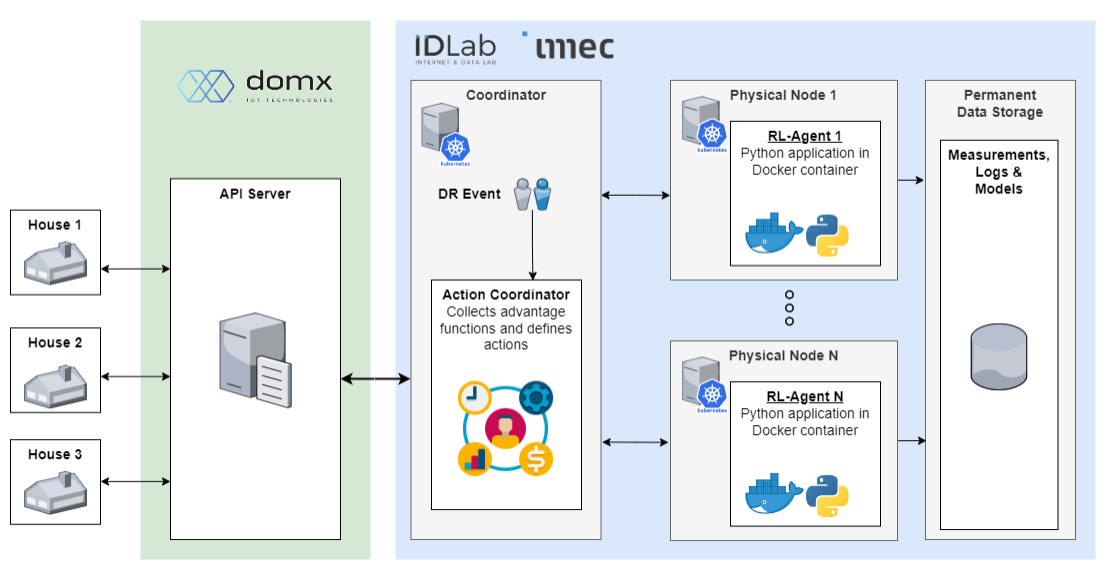Global energy markets are under severe stress. Recent events, including the post-pandemic reopening of societies, geopolitical conflicts, and extreme climate incidents have led to a significant rise in prices. In Europe, household energy bills have reached unprecedented levels, with average households expecting a 3-to-4-fold increase. With such prices expected to persist, exploiting the demand side flexibility of households will be a viable strategy to mitigate these high energy bills.
Demand side flexibility in households is associated with the shifting of heating/cooling demand for a period without compromising the user comfort. While our previous research has focused on developing data-driven controllers to exploit this flexibility in single buildings, for the upcoming field trials, we aim to scale-up and utilize the flexibility for a group of households.
These field trials will be in collaboration with domX and is planned for February 2023. The aim of this trial is to demonstrate a model-free reinforcement learning based coordination mechanism that can leverage the flexibility of different households to provide demand response services.
A part of this trial is the software architecture that ensures reliable and secure interactions between the control mechanism and households. When demand response services are requested, each household’s flexibility is estimated in real-time by the coordinator to control the domX-controlled households.





